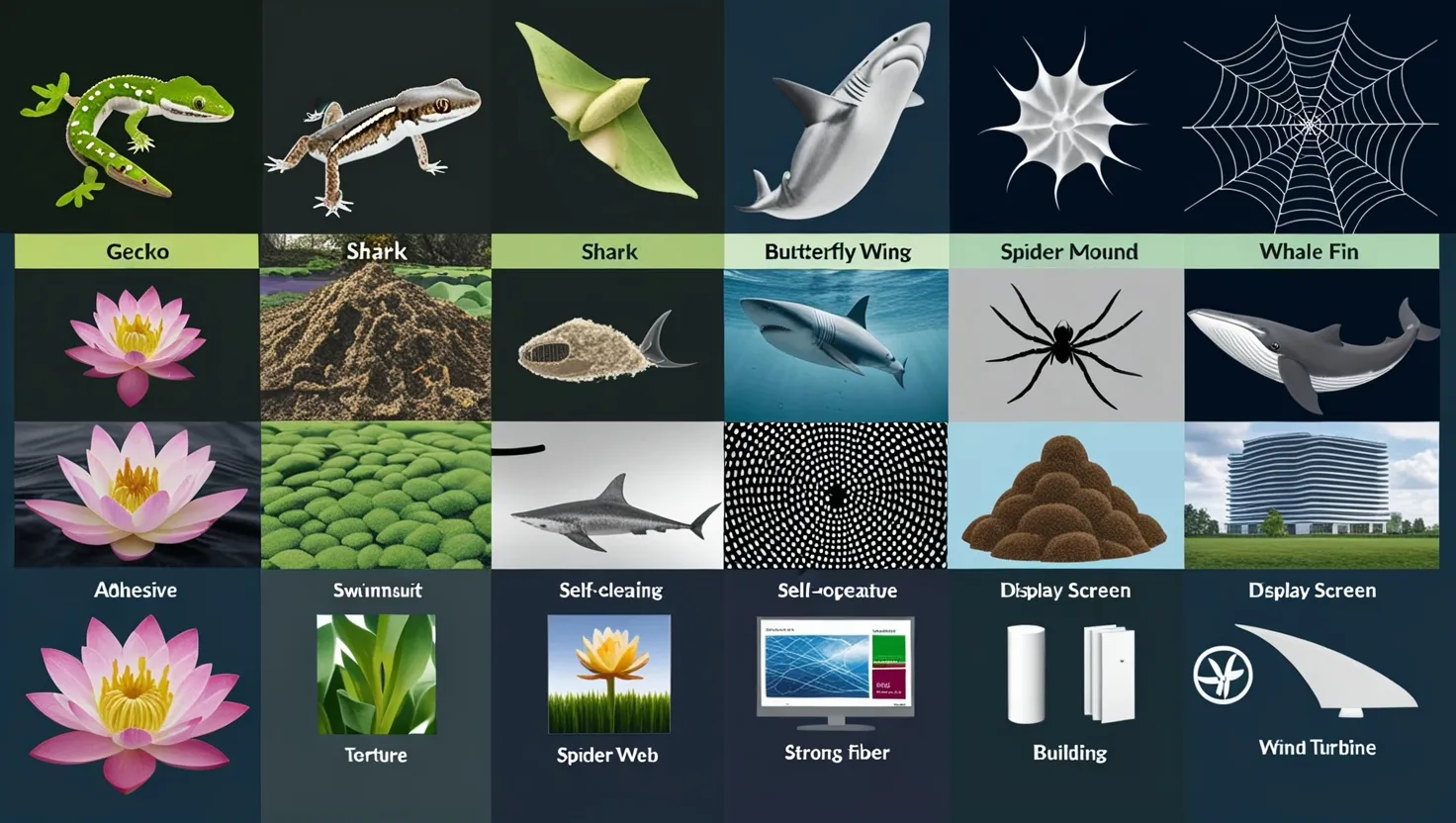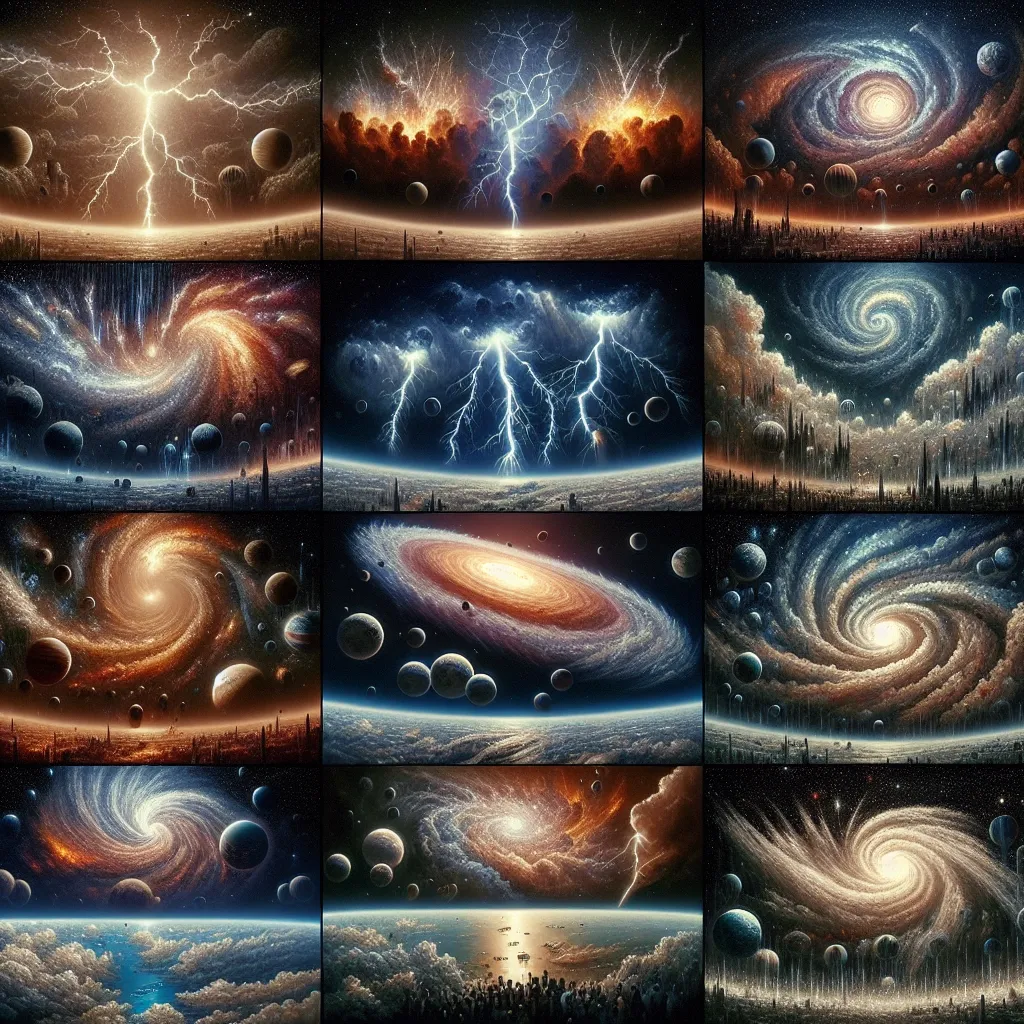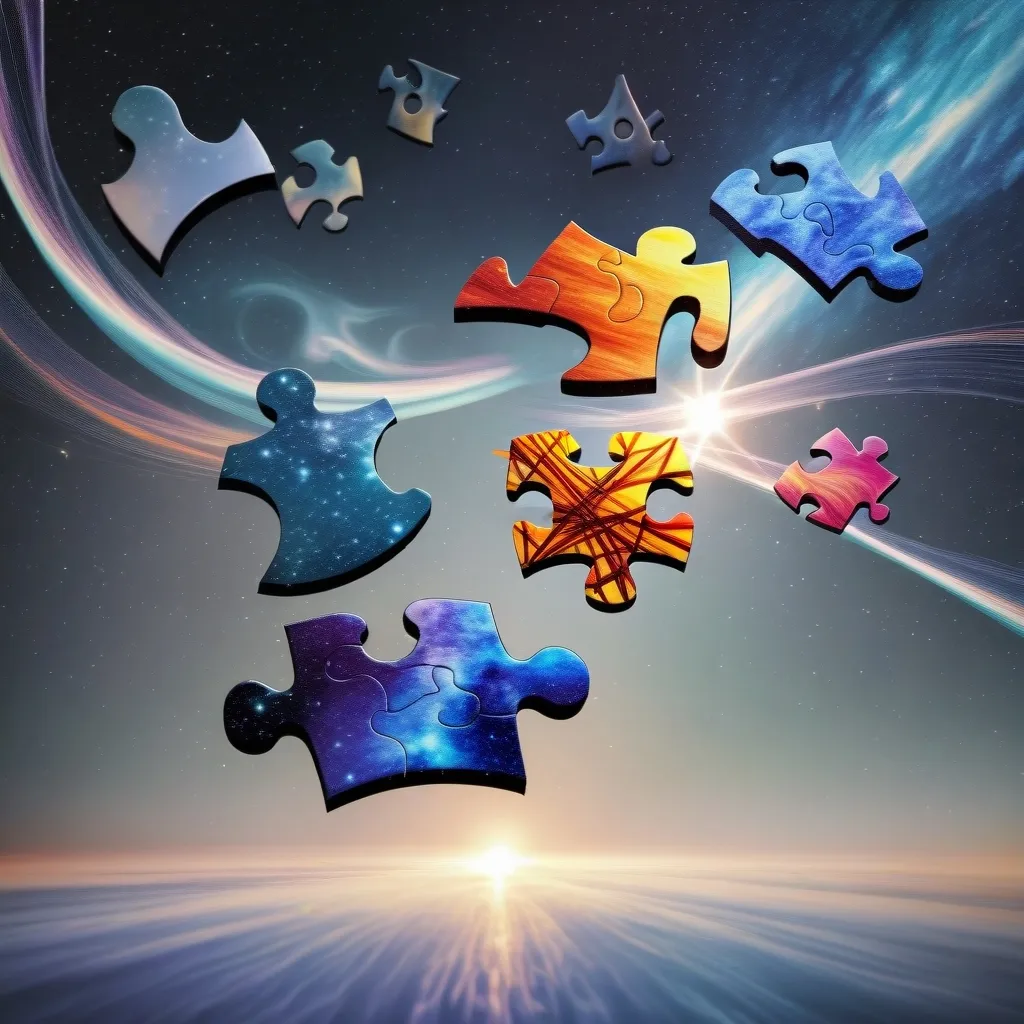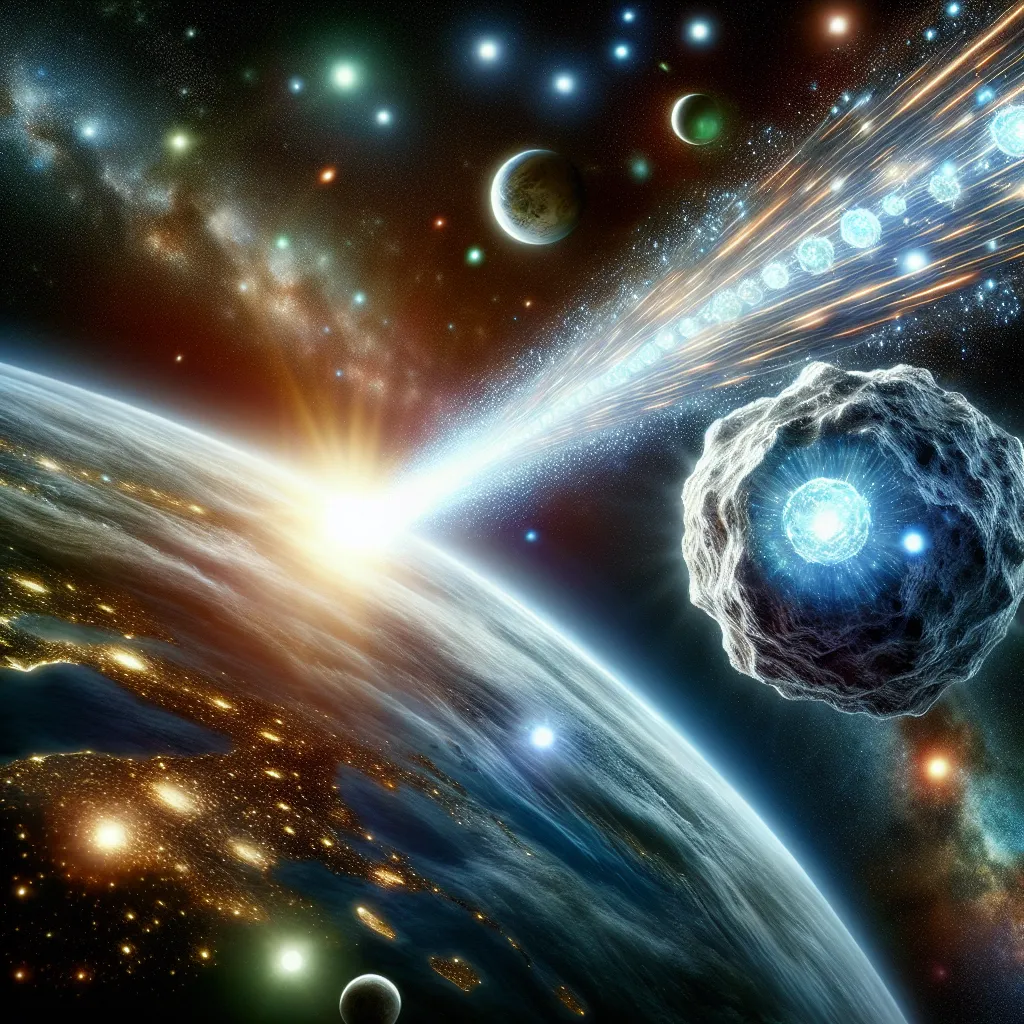When we delve into the realm of physics, we often find ourselves at the crossroads of the bizarre and the fascinating. Here, the rules of our everyday world are twisted and turned, leading us to question the very fabric of reality. Let’s embark on a journey through five mind-bending paradoxes that have left physicists and philosophers alike scratching their heads.
Wheeler’s Delayed-Choice Experiment
Imagine a photon, a tiny particle of light, traveling through space and time, only to have its behavior determined by a decision made after it has already passed a critical point. This is the essence of Wheeler’s delayed-choice experiment, a thought-provoking concept that challenges our traditional notions of cause and effect.
In this experiment, photons are fired through a double-slit setup, a classic configuration that demonstrates the wave-particle duality of light. Here’s the twist: the decision to measure the photon as a wave or a particle is delayed until just before it hits the detector. If we choose to measure it as a wave, it behaves like one, creating an interference pattern. If we choose to measure it as a particle, it behaves like one, showing no interference.
As Wheeler himself mused, “Does the insertion of the beam splitter retroactively influence the photon’s decision, as if the photon decided to travel as a wave millions of years ago based on a future event?” This concept forces us to reconsider the timeline of cause and effect and raises questions about the role of the observer in quantum mechanics.
”The act of observation itself is not a passive act but an active intervention in the world we are trying to measure.”
This quote from physicist John Wheeler highlights the central theme of his experiment: the observer’s influence on the observed phenomenon. It’s a theme that resonates throughout many of these paradoxes.
Quantum Zeno Effect
The Quantum Zeno effect is another paradox that defies our intuitive understanding of time and observation. Essentially, it states that if you observe a quantum system frequently enough, you can prevent it from changing. This sounds like something out of a science fiction novel, but it’s a real phenomenon that has been experimentally verified.
Imagine a radioactive atom that has a certain probability of decaying within a given time frame. If you measure its state frequently, the act of measurement itself can prevent the decay from happening. It’s as if the atom is “frozen” in its current state by the repeated observations.
This effect raises intriguing questions about the nature of time and the impact of observation on quantum systems. If frequent measurements can halt change, what does this say about the role of time in the quantum world?
”The more you observe, the less it changes.”
This simple yet profound statement encapsulates the essence of the Quantum Zeno effect. It challenges our understanding of how observation interacts with the quantum world and invites us to ponder the implications of this interaction.
Black Hole Information Paradox
Black holes are among the most mysterious objects in the universe, and they pose a significant paradox when it comes to information. According to quantum mechanics, information cannot be destroyed; it can only be transformed from one form to another. However, the laws of general relativity suggest that anything that falls into a black hole is lost forever, including information.
This paradox, known as the black hole information paradox, has sparked intense debate among physicists. If information is indeed lost in a black hole, it would violate the principles of quantum mechanics. On the other hand, if information is preserved, it would challenge our understanding of general relativity.
The resolution to this paradox remains one of the biggest open questions in physics, with theories like black hole complementarity and holographic principle attempting to bridge the gap between these two fundamental theories.
”Black holes are not eternal objects but rather transitory, and they eventually evaporate through a process known as Hawking radiation.”
Stephen Hawking’s groundbreaking work on black holes introduced the concept of Hawking radiation, which suggests that black holes are not permanent but eventually dissipate. This idea adds another layer of complexity to the information paradox, as it raises questions about what happens to the information contained within the black hole as it evaporates.
Wigner’s Friend Thought Experiment
Wigner’s friend thought experiment is a mind-bending scenario that delves into the nature of observation and reality. Imagine two observers: Wigner and his friend. Wigner’s friend performs a measurement on a quantum system, but Wigner does not observe his friend or the system until later.
Here’s the paradox: from Wigner’s perspective, the system remains in a superposition of states until he observes it. However, from his friend’s perspective, the system has already collapsed into one definite state upon measurement. This discrepancy raises questions about the nature of reality and who gets to decide what is real.
”The act of measurement is not just a passive observation but an active participation in the creation of reality.”
This perspective, though not directly from Wigner, encapsulates the heart of his thought experiment. It challenges us to think about who the ultimate observer is and how their observation shapes our understanding of reality.
Bell’s Theorem and Local Realism
Bell’s theorem is a cornerstone of quantum mechanics that challenges the concept of local realism. Local realism posits that the properties of a particle are predetermined and that information cannot travel faster than the speed of light. However, Bell’s theorem shows that no local realist theory can reproduce the predictions of quantum mechanics.
In essence, Bell’s theorem demonstrates that quantum mechanics is non-local, meaning that the state of one particle can be instantaneously affected by the state of another, regardless of the distance between them. This phenomenon, known as quantum entanglement, has been experimentally verified numerous times.
”The only way to prove that you understand something is to teach it to a computer.”
While this quote from Donald Knuth is not directly related to Bell’s theorem, it highlights the importance of rigorous testing and verification in physics. Bell’s theorem, through its mathematical rigor, has been instrumental in our understanding of quantum non-locality.
The Paradoxes Continue
These paradoxes are not mere intellectual curiosities; they are fundamental challenges to our understanding of the universe. They invite us to question the very foundations of physics and encourage us to think creatively about the nature of reality.
As we continue to explore these paradoxes, we are reminded of the profound words of physicist Richard Feynman: “I think I can safely say that nobody understands quantum mechanics.” This humility in the face of complexity is what drives us forward, seeking answers to questions that have puzzled us for centuries.
So, the next time you hear about these paradoxes, remember that they are not just abstract concepts but gateways to a deeper understanding of the universe and our place within it. And as you ponder these mind-bending ideas, ask yourself: What other secrets lie hidden in the fabric of reality, waiting to be uncovered?






